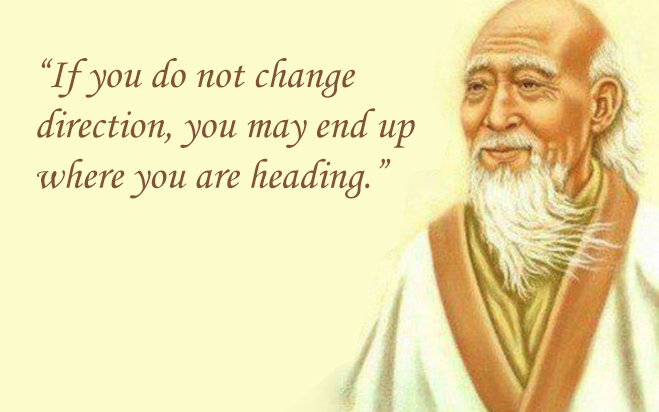
For Lao-tzu the individual and his happiness was the key unit and goal of society. If social institutions hampered the individual’s happiness, then those institutions should be reduced or abolished altogether.
“A leader is best when people barely know he exists, when his work is done, his aim fulfilled, they will say: we did it ourselves.”
To Lao-tzu, government, with its “laws and regulations more numerous than the hairs of an ox,” was a vicious oppressor of the individual, and “more to be feared than fierce tigers.”
Lao-tzu summed it up this way:
The wisest course, then, is to keep the government simple and for it to take no action, for then the world “stabilizes itself.”
As Lao-tzu put it, “Therefore the Sage says: I take no action yet the people transform themselves, I favor quiescence and the people right themselves, I take no action and the people enrich themselves…”
Lao-tzu arrived at his challenging and radical insight in a world dominated by the power of the Ming Dynasty.
Thoughts such as the following could not have endeared Lao-tzu to the ruling classes:
It surely was unthinkable for Lao-tzu, to attempt to enact his ideas, let alone forming a mass movement to overthrow the State.
Nor would Lao-tzu advocate a violent solution, noting that, “Violence, even well intentioned, always rebounds upon oneself.”
And so Lao-tzu took the only way that seemed open to him, counseling the Taoist path of retreat from the outer world, to focus on inner contemplation.
While contemporary Taoists advocate retreat from the world as a matter of religious or ideological principle, it is very possible that Lao-tzu called for retreat not as a principle, but as the only strategy that seemed open to him.
Lao-tzu believed in limited government, low taxes, individual freedom, commerce, and non-violence.
Lao-tzu was the first Libertarian.
Libertarianism is Taoism put into action. Awoken from introspection and put into action. And just in time.
Little has changed in the 2500 years since the Tao Te Ching was written. The drive by some individuals to control others is clearly a permanent condition.
Just as there will always be those who will stop at nothing in seeking to control others, the great majority of people will always respond to the empty promise of greater security, in trade for diminished freedom.
Of course, today, we have more options than Lao-tzu.
Information is widely available, communication nearly instant, and the power to vote makes a Taoist vision of the world a political possibility. Free people, acting in harmony with each other through voluntary agreements, with as little interference as possible from would be ‘controllers.’
Now is the time, for as Lao-tzu put it,
“If you do not change direction, you may end up where you are heading.”

In the world that is coming into being, there will be no governments. Each person is a government. Last will be made first, highest will be made lowest. When the Power Of Generosity is being practiced worldwide and daily, peace will have come to our earth. All are priceless, unto the least and beginning there. Not our beliefs, but the way we live our lives creates the forces that free us or bind us when we pass through from this life. Love is the power and the way. There is no other way. Acts of love endure forever. Gentle is strong. We were never created, but always have been and always will be; we are immortal beings.